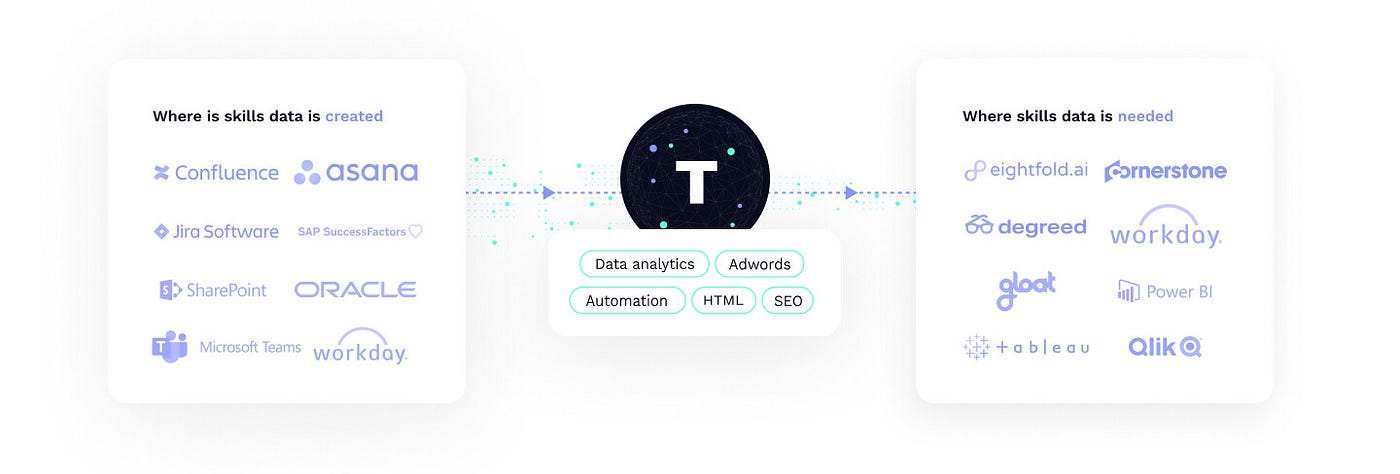cross posted on Acadian Insights.
Ghent is a beautiful city in Belgium, with a storied history, an excellent university, a relatively competent football team, and a growing Worktech scene.
Normally as a VC, you need to figure out pretty quickly whether you want to invest in a company or not. In the case of Techwolf, Thomas had worked with the founders (Andreas De Neve, Jeroen Van Hautte and Mikaël Wornoo) for the past two years as an advisor, so we have an in-depth understanding of the solution, the team and the business problem they are solving.
Over the last few years we have seen many established vendors and start ups apply machine learning to the challenges of skills matching. Skills management is the talk of the town in Worktech. For instance Gartner Analyst John Kostoulas, in his 2022 predictions, estimated by 2024, 20% of all Large Global Enterprises will have successfully invested in a skills aggregation solution. Josh Bersin discusses skills here.
But it turns out that the problem is a wicked one.
Here’s Acadian’s take on the reasons why many vendors are failing to get this right
-
They underestimate the complexity of the ML and NLP requirements. This is heavy stuff.
-
They come at it from a specific silo, (learning, recruitment, internal mobility)
-
They work with limited data sources.
-
They are inwardly focused on the data in their own application.
-
They don’t think of GDPR and privacy early enough.
-
They lack a coherent onboarding process and require long implementation cycles.
Why we think Techwolf will thrive
The research behind Techwolf began at Cambridge University (https://arxiv.org/abs/1910.00275), and has been honed by working with over a dozen leading Belgian and international organizations. They received angel funding and support from the local government start-up fund. It started out working with Belgian banks and utility providers.
The team realised that the data that gives you insight into the employee skills make up doesn’t just live in the traditional HRTECH systems, but in the systems of work. Most organizations run multiple systems that all want skills data, but for different purposes. Asking people over and over again what skills they have doesn’t cut it.

Rather than replacing the existing applications, Techwolf augments them. It helps drive a common skills framework and across the various applications. It is profoundly valuable integration, but not as we usually perceive it. From early on the team focused on getting GDPR right.
The team were patient in finding the MVP, and realised that rather than trying to build the HR application features themselves, they would deliver an API first solution, and one that could deliver results for customers in a weeks, rather than months. Essentially helping companies to move from manual skill identification to ML powered skill inference.
The early pilots have turned into successful long term clients, and Techwolf has now landed large enterprise customers outside Belgium, so now is the time for Techwolf to scale.
We are excited to participate in the round.
The Series A round was led by Stride.VC, with participation from Fortino Capital, Acadian Ventures, PMV, Syndicate One and existing investors.Thomas will join the board as an observer. More details here and here is the post from the Techwolf team.




